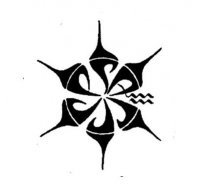Greetings fellow phycologists,
I think that we can all agree that the greatest strength of our society is the fantastic folk of which it is comprised. We have members from around the planet, at every stage of professional development, all unified by our love of all things algal. Thus, it is with a heavy heart that after consultation with, and on behalf of, the Executive Committee, we have decided to cancel the meeting in Rhode Island this year for several Covid-19 related reasons.
First, the expanding nature of the virus carries a significant risk of quarantine for travelers. We do not want our members to be trapped somewhere due to the vicissitudes of public health. Second, by making this decision early, we hope to stave off as much financial loss as possible. This way folks do not need to cancel reservations, air-travel, etc. Third, and most significantly, we love our members and would not want to endanger any by exposing them to potential pathogens.
So, what about the meeting? For example, what about the folks who were looking forward to the Bold Competition? The excellent folks on the Executive Committee are currently discussing several options, ranging from a possible one-day, video-conference to moving the meeting itself to 2021. Alas, we do not have anything definitive yet, but are working on resolutions that we will pass along to everyone.
I sincerely apologize for this message: if you are like me, the annual meeting is one of the things most anticipated every year. That said, sometimes events transpire that are out of our hands, and this appears to be the case.
If I may be of any help answering questions or assisting in any way, please do not hesitate to contact me. We will also be posting information on the PSA website and in subsequent emails as information becomes available.
On behalf of the EC, we hope that you understand our abundance of caution, and further hope that everything resolves as soon as possible.
Best,
Dale Casamatta
dcasamat@unf.edu
Dr. Dale Casamatta, Professor
President, Phycological Society of America
Department of Biology
University of North Florida
Jacksonville, FL 32224
